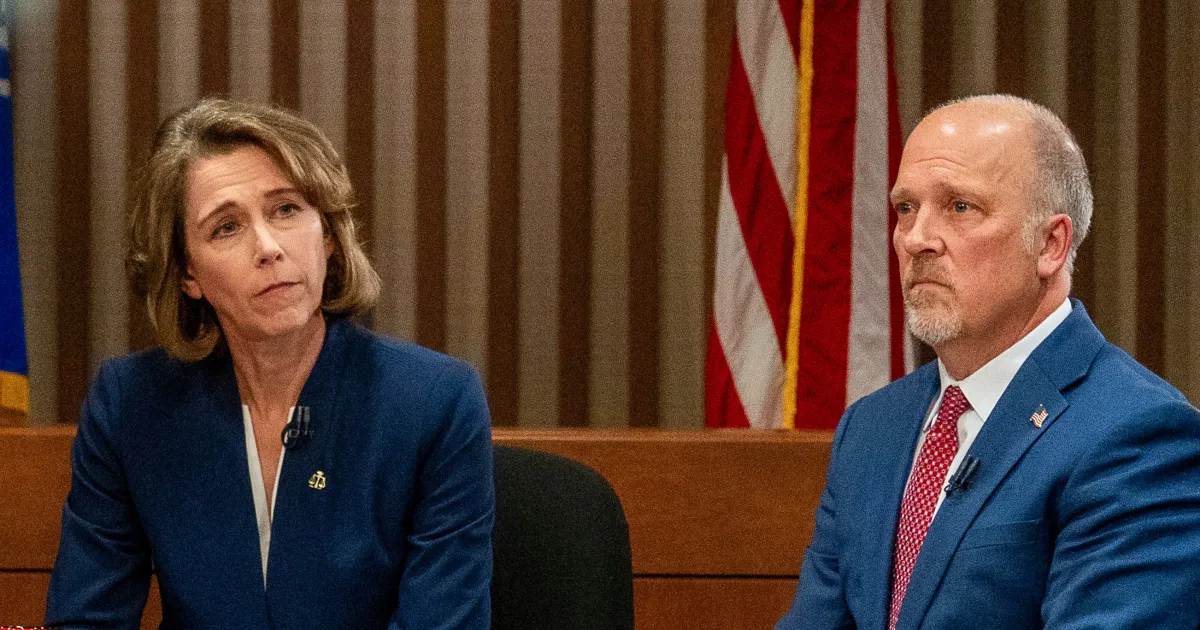
Susan Crawford has officially won a seat on the Wisconsin Supreme Court, according to projections by NBC News. This victory allows liberals to maintain their narrow majority on the battleground state’s highest court, marking a significant political event that defies the financial influence of billionaire Elon Musk, who invested millions to oppose her candidacy. Crawford, a circuit judge from Dane County backed by the Democratic Party, secured a 10-year term on the court, defeating Brad Schimel, a Waukesha County circuit judge and former Republican attorney general.
The Wisconsin Supreme Court election is the first major battleground state election during President Donald Trump's second term. This technically nonpartisan contest attracted national attention and broke records as the most expensive state Supreme Court race in U.S. history. The results represent a setback for both Trump and Musk, who had thrown their weight behind Schimel. Trump endorsed Schimel in the race's final days, while Musk made a significant impact by spending lavishly, visiting Wisconsin just days before the election, and frequently sharing updates on his X feed.
Democrats and progressive groups effectively made Musk a central antagonist in their campaign narrative, criticizing his attempts to sway the election and his controversial efforts to reduce federal jobs through the Department of Government Efficiency. Crawford's success ensures that liberals will continue to hold a 4-3 advantage on the court, particularly as it heads into a term that could address critical issues such as abortion rights, union rights, and redistricting.
Despite Musk and his associated groups pouring over $15 million into the campaign, Democrats managed to maintain a slim advantage in advertising spending, as reported by AdImpact. Democratic-aligned organizations launched aggressive campaigns portraying Musk as trying to "buy" the election for Schimel. Crawford herself utilized Musk as a foil in her campaign speeches, effectively rallying support against his influence.
The Democratic Party of Wisconsin initiated a town hall tour titled “People v. Musk,” featuring surrogates like Minnesota Governor Tim Walz, who criticized Musk's involvement in Wisconsin politics. The campaign pointed to Musk's electric vehicle company, Tesla, which recently filed a lawsuit challenging a Wisconsin law that prohibits car manufacturers from owning dealerships—a case that could eventually reach the state Supreme Court.
Additionally, Democrats condemned Musk’s offer of $100 to Wisconsin voters for signing a petition opposing “activist judges.” The Democratic state attorney general, Josh Kaul, even attempted to block Musk's $1 million donation aimed at recruiting local spokespeople for the petition rally held on Sunday. Meanwhile, the left largely refrained from framing the race around Trump, despite his previous narrow victories in Wisconsin during the last two presidential elections.
The strategy of targeting Musk is one that Democrats may consider replicating in upcoming elections, including the 2026 midterms. Schimel attempted to align himself with Trump in the race's closing days, aiming to galvanize conservative voter turnout. He ran ads emphasizing Trump’s endorsement and participated in campaign events alongside Donald Trump Jr., stressing the necessity of a robust support network around Trump amidst numerous legal challenges faced by his administration.
As the election progressed, both candidates attempted to portray each other as soft on crime, despite the fact that the state Supreme Court rarely adjudicates sentencing cases. Notably, Crawford highlighted allegations against Schimel regarding the mishandling of thousands of rape kits during his tenure as attorney general. On the other hand, groups aligned with the left emphasized Crawford’s strong stance on reproductive rights, which became pivotal in their messaging, especially in light of ongoing discussions surrounding Wisconsin's 1849 abortion ban.
The Wisconsin Supreme Court is currently reviewing significant cases related to abortion rights, including one challenging the state’s historic ban. As the court is expected to address these pressing issues, the outcome of Crawford's election will influence the trajectory of reproductive rights in the state. Moreover, the court is poised to rule on challenges to legislation from former Governor Scott Walker that curtailed collective bargaining for public workers, known as Act 10, along with potential re-evaluation of the state’s congressional maps.
With this election, liberals have regained a majority on the Wisconsin Supreme Court for the first time in 15 years, following the recent retirement of Justice Ann Walsh Bradley. Notably, Wisconsin will continue to hold annual state Supreme Court elections from 2026 to 2030, making this a critical period for political engagement and voter turnout. Additionally, Wisconsin voters have approved a proposed amendment to enshrine an existing voter ID law into the state constitution, further shaping the political landscape in the state.